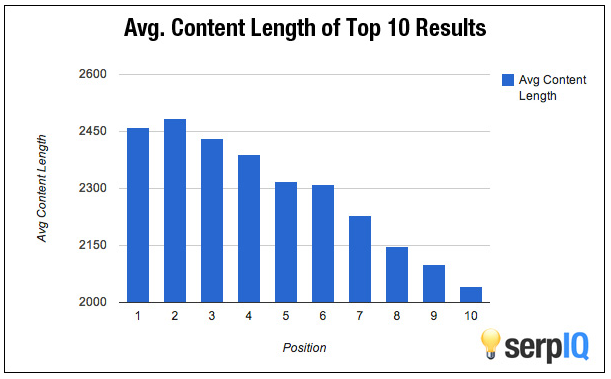In the vast digital landscape of the internet, Google stands as the supreme ruler.
Think about it: when was the last time you sought information and didn’t resort to the age-old habit of “Googling it”?
Probably a rare occurrence. With over 95 billion searches conducted each month, Google serves as the go-to hub for answers, information, and solutions.
For business and website owners in search of services, securing a prominent position in Google’s search results can make all the difference in the world.
In 2023, with the expertise of a reputable SEO agency, achieving top rankings on Google can be expedited, but patience and quality strategies remain crucial for lasting success.

In this blog, exploring the factors that influence how long it takes to reach the pinnacle of Google’s search results.
Understanding the Basics of SEO:
“SEO, or Search Engine Optimization, isn’t just a buzzword!”
What is SEO?
Imagine the internet as a vast library. Websites are the books, and search engines like Google are the librarians. Now, if you’re an author (website owner), you’d want the librarian to recommend your book (website) to readers (users). SEO is the method you’d use to make sure your book is easily found and recommended.
SEO involves a set of practices and techniques aimed at improving a website’s visibility on search engines. This is done by optimizing various elements of a website, both on-page (like content, meta tags, and URLs) and off-page (like backlinks and social signals). The goal? To ensure that search engines understand the content and context of a website and rank it high in relevant search results.
Is SEO needed for every business?
At a glance, one might think that SEO is a tool exclusively for large corporations or e-commerce giants. However, the reality is more nuanced. SEO serves as a digital compass, guiding potential customers to businesses. Regardless of the size or nature of a business, if it has a website, SEO plays a pivotal role in enhancing its online visibility.
Take a local bakery, for instance. While they might not compete on a global scale, they still need customers in their vicinity to find them online. This is where local SEO comes into play, optimizing for location-specific keywords and ensuring that the bakery shows up in local searches.
Even businesses operating in highly specific niches can benefit from SEO. By targeting precise, niche-specific keywords, they can reach a dedicated audience that’s actively searching for their specialized services or products.
So, is SEO needed for every business with a website? In a broad sense, yes. SEO is a tool that enhances online visibility, drives traffic, and fosters growth. However, the extent to which it’s implemented should align with a business’s goals, audience, and online strategy.
Why Does SEO Take Time?
Ever wondered why SEO isn’t a magic instant button?
SEO (Search Engine Optimization) takes time because it involves various steps to make a website more visible on search engines like Google:
First, search engines need to find and understand your website, which takes time. Then, they evaluate the quality and relevance of your content. This process doesn’t happen instantly.
Additionally, SEO involves improving many aspects of your site, like keywords, links, and user experience. Making these changes and seeing results also requires time. It’s like growing a plant; you need patience for it to flourish. So, when you use SEO services, remember that good results take time to blossom.
Factors That Influence Ranking Speed:
As you start your SEO journey, it’s vital to grasp the factors affecting your website’s speed in climbing SERPs.
Just like a road trip, the path to SEO success has its twists, turns, and occasional speed bumps. Let’s explore further the factors influencing your website ranking.

Image source: https://www.wordstream.com
On-Page SEO Optimization: Fuelling Your SEO Engine
- Content Quality and Relevance:High-quality content is the premium fuel for your SEO engine. Google treasures well-researched, engaging content that addresses your audience’s needs.
Content length is vital for SEO, with longer, comprehensive articles often ranking better. These pieces offer valuable information and satisfy user queries effectively

Image source: https://medium.com
- Keyword Selection and Placement: Keyword selection and placement are crucial in SEO. First, choose words or phrases (keywords) people often use when searching online.
Imagine you’re selling shoes; “running shoes” could be a good keyword. Next, strategically place these keywords in your website’s content, titles, and meta descriptions. But don’t overdo it; make sure it sounds natural. This helps search engines understand what your page is about. Effective keyword use helps your website show up higher in search results, making it easier for people to find you.
- Website Structure and Speed: Your website’s structure is to the road network that users and search engine crawlers use for navigation. A well-organized and fast-loading website functions like a well-maintained highway, ensuring a seamless experience for both users and search engines.
It’s crucial for SEO success because it enhances user experience, which search engines prioritise.

- Content Quality and Relevance:High-quality content is the premium fuel for your SEO engine. Google treasures well-researched, engaging content that addresses your audience’s needs.
-
Off-Page SEO Strategies
- Backlinks and Their Importance: Backlinks are like recommendations from other websites. When a reputable site links to yours, it’s a vote of confidence. This tells search engines that your content is valuable and trustworthy.
Example:
Imagine you’re looking for a good book.
If many friends recommend the same one, you’re likely to trust their judgment.Similarly, search engines trust websites with lots of quality backlinks. They boost your site’s credibility and authority, helping it rank higher in search results.
- Backlinks and Their Importance: Backlinks are like recommendations from other websites. When a reputable site links to yours, it’s a vote of confidence. This tells search engines that your content is valuable and trustworthy.
-
Technical SEO Considerations
- Mobile Optimization: A mobile-optimized site ensures seamless navigation and interaction on smartphones and tablets. Neglecting this can lead to a bumpy ride, with users bouncing from your non-mobile-friendly site, causing lower rankings and traffic.

Image source: https://search.google.com/test/mobile-friendly
-
Website Security: Google values user safety and privacy, and secure websites are more likely to gain trust and higher rankings.
Implementing HTTPS encryption on your site is essential.
It’s like locking your digital doors and windows to keep out potential threats.

Image Source: https://www.searchenginewatch.com
A secure website safeguards user data and reputation, much like maintaining a vehicle for a safe journey.
Neglecting security can result in breaches, RISKING rankings and reputation!
-
Page Loading Times: Page load time refers to the duration taken for a web page to completely load. Typically measured in seconds, it serves as a crucial metric for assessing a web page’s performance.
Slow-loading pages can result in high bounce rates, negatively impacting user experience and SEO rankings.
What Is a Good Page Load Time on a Website?
Optimal page load time ranges between 0 to 2 seconds, indicating efficient performance. A load time of approximately 3 seconds remains within an acceptable threshold.
However, any duration surpassing 3 seconds heightens the likelihood of visitor leaving prematurely. Therefore, ensuring a fast-loading website is imperative for user retention and engagement.
How Website Speed Affects SEO Rankings and User Satisfaction?
A slow website significantly elevates bounce rates, adversely affecting SEO performance. When pages take too long to load visitors are more likely to leave without engaging with content.
This not only diminishes user experience but also signals to search engines that the site may not provide what users are looking for.
As a result, search algorithms may lower the website’s ranking in search results, reducing its visibility. This detrimental cycle can impede organic traffic, hinder online visibility, and ultimately undermine the website’s overall effectiveness in attracting and retaining visitors. It underscores the critical importance of optimizing website speed for enhanced user experience and SEO efficacy.
- Mobile Optimization: A mobile-optimized site ensures seamless navigation and interaction on smartphones and tablets. Neglecting this can lead to a bumpy ride, with users bouncing from your non-mobile-friendly site, causing lower rankings and traffic.
SEO Timeline Expectations:
Search Engine Optimization (SEO) is a powerful tool for boosting online visibility and attracting organic traffic. However, it’s important to have realistic expectations about the timeline for seeing results.
-
The Early Days: What to Expect (Months 1-3)
At the beginning of your SEO journey, the focus will be on conducting thorough keyword research, optimizing on-page elements (like titles, meta descriptions, and headings), and ensuring your website is technically sound. During this period you might not see significant changes in rankings but the groundwork is being laid for future improvements.
Content Creation and Optimization (Months 3-6)
“Content is king in SEO”
Engaging, relevant, and high-quality content not only pleases search engines but also captivates your audience. You’ll need a few months to develop and optimize this content. Patience is key; the impact of content may take time to manifest.
Building Backlinks (Months 6-9)
Backlinks, or links from other websites to yours are a strong signal of credibility to search engines. This process takes time because it involves outreach, relationship-building, and ensuring that the links are from authoritative sources. Be prepared for a gradual accumulation of backlinks.
Monitoring and Tweaking (Months 9-12)
By now, you’ll start to see some improvements in your rankings and traffic. It’s important to closely monitor these changes and make necessary adjustments. This could include refining keywords, updating content, or tweaking technical aspects of your site.
Establishing Authority (Months 12-18)
Building a strong online presence and authority takes time. Continued efforts in content creation, backlink acquisition, and user engagement will solidify your position in search results.
Long-Term Growth and Maintenance (Beyond 18 Months)
SEO is an ongoing process. After the initial stages, it’s about maintaining your efforts and adapting to changes in search engine algorithms. Consistency is crucial for sustained success.
Accelerating SEO Success:
To speed up your SEO success, focus on foundational steps:
-
Content Strategy and Quality
A good content strategy means planning what you’ll share on your website. It’s like making a roadmap for your audience. But remember, quality is key! Your content should be helpful, interesting, and well-written to keep visitors coming back for more.
This strategy involves:
- Keyword Research: Begin with thorough keyword research to uncover the terms and phrases your audience is searching for. This adventure is all about unearthing the precise words and phrases that your audience commonly employs as they traverse the vast online landscape.
Using tools like Google Keyword Planner and SEMrush, you’ll uncover the words and phrases your audience frequently uses online.

Image source: https://mangools.com
- Content Planning: Content planning is like making a shopping list before going to the store. You decide what topics or ideas to write about and when. It helps keep your content organized and ensures you always have something valuable to share with your audience.
- Quality Content: Quality should always take precedence over quantity. Google values content that provides value, is well-researched, and engages the audience.
- Keyword Research: Begin with thorough keyword research to uncover the terms and phrases your audience is searching for. This adventure is all about unearthing the precise words and phrases that your audience commonly employs as they traverse the vast online landscape.
-
Link-Building Tactics
Link-building means getting other websites to link to yours. It’s like making new friends who vouch for you. Choose quality sites related to your topic. Good links can boost your website’s popularity!

Image source: https://brandastic.com
- Outreach: Outreach is all about making connections in your online niche – think of it as extending a digital handshake.
Connecting with other websites and influencers, you’re not just building relationships.
You’re also creating OPPORTUNITIES for your valuable backlinks.
- Guest Posting: Guest posting is your chance to become a guest speaker at someone else’s event.
Creating valuable content tailored to another website in your industry. In return, websites often include backlinks to your site.
It’s a symbiotic relationship where you provide fresh insights to a new audience while gaining authoritative backlinks to enhance your SEO profile.
- Content Promotion: After crafting stellar content, you don’t just leave it on your virtual shelf, right?
Then, what’s the next step?
You have to actively share it on social media, forums, and other platforms!
Think of content promotion as spreading the word about your latest creation. When your content resonates with the digital crowd, it naturally attracts backlinks as others find it valuable and worth referencing.
- Outreach: Outreach is all about making connections in your online niche – think of it as extending a digital handshake.
-
Monitoring and Adjusting
To speed up SEO success, keep an eye on what’s working and what’s not. It’s like driving a car and adjusting your route for the quickest way. Check your website’s performance regularly and make small tweaks for better results. This way, you’ll reach your SEO goals faster!
This phase encompasses several key elements:
- Regular Audits: Regular website maintenance ensures everything runs smoothly. Conducting audits means reviewing your site to catch any issues or areas needing improvement. It’s key for long-term success in SEO and keeps your website healthy and efficient.
-
Analytics Review: 2.By analysing website traffic, keyword rankings, and user behaviour you gain valuable insights into your SEO progress.
Tools like Google Analytics and Google Search Console provide data that allows you to understand which pages attract the most traffic, which keywords drive organic visits and how users interact with your content.
- Algorithm Updates: Google’s frequent algorithm updates can disrupt rankings and SEO strategies. It’s crucial because even small algorithm tweaks can impact SERP positioning.
- Competitor Analysis: Analysing your competitors’ SEO strategies can provide valuable insights into what works within your industry.
Common SEO Pitfalls to Avoid:
-
Keyword Stuffing
Keyword stuffing is a common pitfall that can derail your SEO efforts. It’s when you cram too many keywords into your content making it hard to read. Search engines don’t like this and might even penalize your site, so it’s best to use keywords naturally.
Here’s an example of keyword stuffing:

Image source: https://delante.co
How to avoid:
Instead of cramming keywords into your content unnaturally focus on creating high-quality, informative content that genuinely addresses your audience’s needs.
Use keywords naturally and sparingly ensuring they seamlessly blend into your content.
-
Low-Quality Backlinks
Low-quality backlinks are like weak supports in a building. They come from unreliable or spammy websites and can harm your site’s credibility. It’s important to focus on getting high-quality trustworthy backlinks for better SEO results. To avoid them:

How to avoid:
Prioritize quality over quantity when building backlinks.
Avoid link schemes which are built automatically without editorial control and focus on earning backlinks through valuable content and genuine relationship.
-
Neglecting Mobile Optimization
Ignoring mobile optimization is like forgetting a big part of your audience. Many people use phones to browse so your site must look good and work well on mobile devices.

Image source: https://www.semrush.com
How to avoid:
It’s essential to ensure your website is mobile-responsive.
It’s not merely an option; it’s a necessity.
To cater effectively to the mobile audience test your website’s mobile friendliness from here – Mobile friendly test by Google.
Conclusion
In the world of SEO, getting to the top of Google needs a well-thought-out plan. It’s like solving a complex puzzle with many pieces.
While you might see quick progress at first, staying on top for the long run requires careful planning relevant content and strong website links. Don’t forget to keep up with changes in how search engines work to stay ahead of the competition.
| Share |

